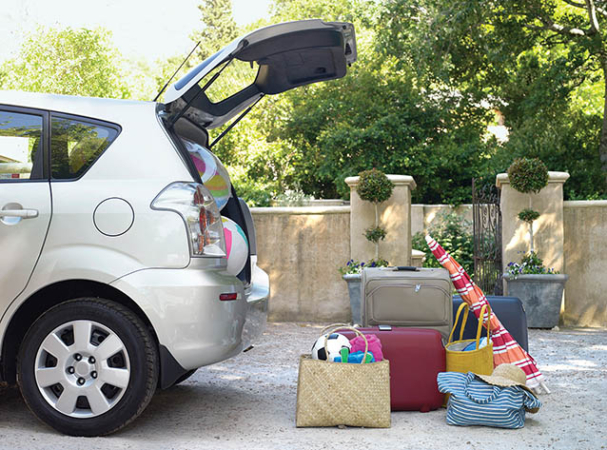Gas prices have been historically high in 2022. According to the fuel price comparison site GasBuddy.com, as of June 2022, the least expensive state for regular gas was Georgia, at $4.43 a gallon. The most expensive was California, where drivers could expect to pay about $6.34 per gallon. During June, which marks the beginning of the summer travel season in many areas, fuel costs in most part of the United States averaged around $5 per gallon.
With prices so high, many drivers have been looking for any way to save money at the pump. Some may have cut back on driving habits while others might have organized community carpools. Others may have taken to other modes of transportation. For those who have no option but to drive their vehicles, there are ways to reduce fuel consumption without resorting to walking or cycling.
Lighten your load
How much weight is being carted around in a vehicle can directly affect the amount of gas it consumes. Remove any unnecessary items from the trunk or cargo area of a truck or SUV. Consider removing extra accessories, like roof racks or hitches.
Slowly accelerate
Resist the urge to “gun it” when coming off a stop light or stop sign, as rapid acceleration wastes gas. Press the accelerator pedal gently to increase speeds gradually and conserve fuel. Similarly, coast to a stop, rather than slamming on the brakes.
on’t idle
Turn off the engine if you will be idling for more than a minute. Idling for longer than that is merely wasting fuel. Modern engines do not need to be warmed up for more than 30 to 60 seconds, even when the weather is cold. Driving will warm up the car faster than idling while parked, provided you drive moderately until the temperature gauge shows the car has reached the right temperature.
AC or windows open?
While it’s true that the air conditioning will drain fuel when in use, driving with the windows open makes the vehicle less aerodynamic by causing drag. Some experts recommended leaving the windows down during slower, city driving and using the AC for higher speeds on the highway.
Keep tires properly inflated
Poorly inflated tires can make a vehicle less efficient by causing more friction between tire and roadway. Check the PSI rating for the tires and inflate accordingly. Many modern vehicles automatically alert drivers when tires are low on air.
Drive a consistent speed
When driving on the highway, switch to cruise control to maintain a consistent speed. Driving steady reduces drag, which in turn reduces fuel consumption.
Stick to a maintenance schedule
Maintaining your vehicle by getting routine oil changes, fluid checks and other simple maintenance helps a car or truck run properly, and that can help conserve fuel.
These are just a few strategies drivers can employ to conserve fuel in the face of historically high gas prices.




